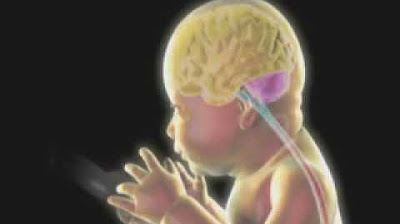How the brain makes memories | Lisa Genova | Big Think
Summary
TLDRThis script delves into the fascinating process of memory formation, highlighting four key steps: Encoding, where sensory input is translated into neurological language; Consolidation, linking neural activity into associative patterns; Storage, creating lasting changes in neural architecture; and Retrieval, activating neural circuits to recall past experiences. It emphasizes the role of the hippocampus in memory and the potential of neuroimaging to visualize memory recall. The narrative also touches on the quest to understand the genetic and molecular basis of memory, aiming to decode how the brain transitions from ignorance to knowledge.
Takeaways
- 🧠 The human brain undergoes a transformation every day as it encodes new experiences and information.
- 🔢 Memory formation involves four basic steps: Encoding, Consolidation, Storage, and Retrieval.
- 📚 Encoding is the process where the brain translates sensory information into neurological language.
- 🔗 Consolidation links unrelated neural activity into associative neural circuits that can last for decades.
- 🔒 Storage is the phase where the brain makes long-lasting changes in its structure to 'lock in' the information.
- 🌟 The hippocampus is crucial for forming consciously held memories and is the site of neurogenesis.
- 🔑 Retrieval is the activation of the neural circuit to recall and revisit past experiences or learned information.
- 📈 Functional MRI imaging can visualize the neural activity during the process of memory encoding and retrieval.
- 🔍 The pattern of neural activity during retrieval matches the activity when the original information was processed.
- 🧬 Advances in understanding memory will come from decoding the molecular and genetic events behind memory formation.
- 🧬🧬 The transition from not knowing to knowing involves specific changes in the brain at a molecular and genetic level.
Q & A
What are the four basic steps in creating a memory according to the script?
-The four basic steps in creating a memory are Encoding, Consolidation, Storage, and Retrieval.
What does Encoding in memory formation involve?
-Encoding involves the brain taking in all sensory information from an experience and translating it into neurological language.
Can you explain the process of Consolidation in memory formation?
-Consolidation is the process where the brain links together previously unrelated neural activity, creating a pattern of associative connections or a neural circuit that can last for a long time.
What is the role of the hippocampus in memory formation?
-The hippocampus is essential for forming all consciously held memories and is the site where neurogenesis, the birth of new neurons, occurs.
How does the brain lock in information during the Storage phase of memory formation?
-During Storage, the brain makes enduring, long-lasting changes in neural architecture, neuroanatomy, and neurochemistry that persist even after the initial learning or experience.
What is Retrieval in the context of memory, and how does it work?
-Retrieval is the process of getting information out of the brain to remember it. It involves activating the neural circuit associated with the memory, allowing one to recall or revisit past experiences or knowledge.
How can brain scans, such as functional MRI imaging, help us understand memory?
-Brain scans can visualize the neural activity during memory formation and retrieval, showing which areas of the brain are activated when a memory is being formed or recalled.
What happens in the brain when you remember an image, according to the script?
-When remembering an image, the brain initially lights up in different areas while searching for the memory. Once the memory is retrieved, the brain activity lands on the same places that were activated when the image was first viewed.
What does the pattern of neural activity during memory recall depend on?
-The pattern of neural activity during memory recall depends on what was paid attention to and learned during the initial experience.
How is the science of memory trying to unravel the changes that occur in the brain?
-The science of memory is working to understand the specific changes that occur on a molecular and genetic level when the brain transitions from not knowing something to knowing it.
What is the ultimate goal of advances in the study of memory?
-The ultimate goal of advances in the study of memory is to crack the code of molecular events and understand how the human brain forms and retrieves memories at a genetic and molecular level.
Outlines

此内容仅限付费用户访问。 请升级后访问。
立即升级Mindmap

此内容仅限付费用户访问。 请升级后访问。
立即升级Keywords

此内容仅限付费用户访问。 请升级后访问。
立即升级Highlights

此内容仅限付费用户访问。 请升级后访问。
立即升级Transcripts

此内容仅限付费用户访问。 请升级后访问。
立即升级5.0 / 5 (0 votes)






